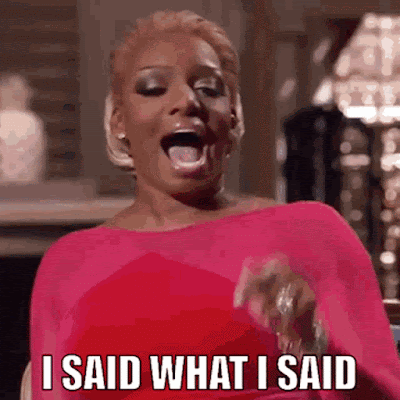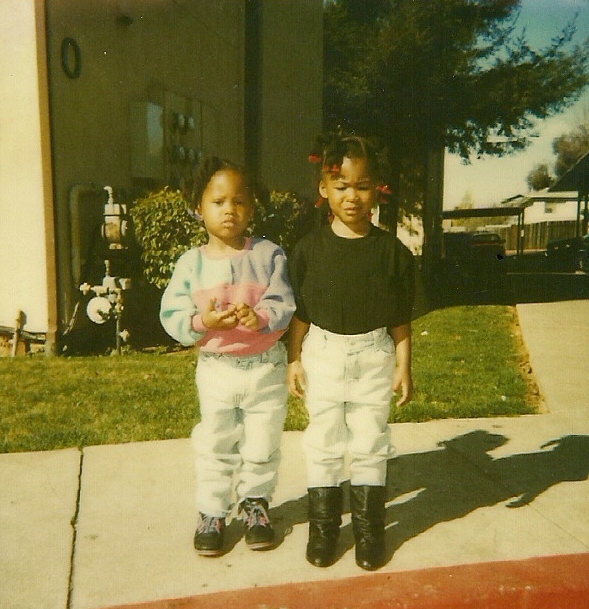Understanding Trauma and Its Impact on Mental Health—Especially for People of Color
Let’s talk about trauma!
First, let’s set the stage with the clinical definition. The DSM-5 describes trauma as exposure to catastrophic or aversive events. But here’s the thing—trauma doesn’t always look like what we traditionally think of: war, natural disasters, or abuse. It can be the things we’ve been conditioned to shrug off—being judged by the church, bullied at school, or even dismissed by a doctor who doesn’t take your pain seriously. Trauma is sneaky like that. It’s not just the big, life-altering moments; sometimes, it’s the slow drip of stress, microaggressions, and systemic oppression that wears us down over time. And just because something is common doesn’t mean it’s normal.
The Normalization of Trauma in Communities of Color
Here’s the kicker: people of color tend to downplay their trauma all the time. NOW LISTEN CLOSELY MY PEOPLE… Have we become so numb to things like community violence, long-term incarceration, or even being shot that we no longer recognize them as traumatic? Some psychologists think so!
In my work, I see this firsthand. When I ask clients if they’ve experienced trauma, many say no—until I start listing examples. So let’s be clear:
• NO, being kicked out of your home at 15 because you came out to your parents is not normal.
• NO, having to parent your younger siblings because you don’t know when your parent will be back is not normal.
• NOOOOO, being forced to sit at the holiday dinner table with THAT UNCLE who made you uncomfortable as a kid is not normal.
Just because something is common in our culture doesn’t mean it’s okay. Recognizing trauma is the first step in healing from it.
Don’t believe me? Check out this article:
https://pmc.ncbi.nlm.nih.gov/articles/PMC6338337/
Trauma Changes How We See the World
Trauma rewires our brains. It reshapes how we see and experience the world.
• That feeling in your gut when you walk into a grocery store and feel unsafe? That’s trauma.
• The fact that you can’t seem to unclench your jaw or lower your shoulders? Trauma.
• The chronic pain, migraines, gut issues, and even struggles with things like substance use, eating disorders, or hoarding? Trauma, trauma, trauma.
Trauma isn’t just in our heads—it’s in our bodies. And if we don’t deal with it, it stays there, taking up space and dictating how we move through the world. This is more than just our “nerves being bad!”
Do You Trust People? I Didn’t.
For years, I tested the people who wanted to get close to me. I needed to know they wouldn’t hurt me. Somehow, in a football field full of emotionally healthy people, I always found the one person just as broken as me. Sound familiar? My therapist used to tell me that was trauma guiding my choices.🫂
But here’s the good news: if I can break those cycles and become a therapist with fulfilling relationships, you can too.
So, How in the Hell Do We Recover?
I know that moment when you just want to scream, I NEED HELP! But asking for help is hard—especially if you’ve been ignored before.
I remember being a little girl, hoping a teacher would notice my pain. But how could they? I was too busy laughing, smiling, and dancing around. I was even voted class clown my senior year—while living in a teen homeless shelter. That’s the thing about trauma: it teaches us to wear masks.
So what helped me heal?
• Learning to put the mask down—but only in spaces that felt safe.
• Understanding that I didn’t have to people-please or be the comic relief just to stay safe.
• Exposing myself to the world in a gradual way so I could have corrective experiences with people and situations that were different from my past. (The only way to find out the world isn’t all hot lava is to open the door and check!)
• Going to therapy—with a trusted provider. I’ve had several therapists, including ones where I sat in silence for an hour. Don’t give up. Find someone who gets you. My current therapist is the G.O.A.T., and NO, I WILL NOT SHARE HER (sorry).
Other tools?
• Building a community of safe people
• Mindfulness and grounding techniques
• Journaling and self-reflection
• EMDR therapy or Brainspotting (game-changers!)
Healing is possible. And you don’t have to do it alone.
Ready to Start Your Healing Journey?
If anything in this blog resonated with you, let’s talk. I offer free consultations, so you can take the first step without pressure. Because you deserve to heal. You deserve to unlearn the lies trauma told you.
Schedule your free consultation today!






Comments
Post a Comment